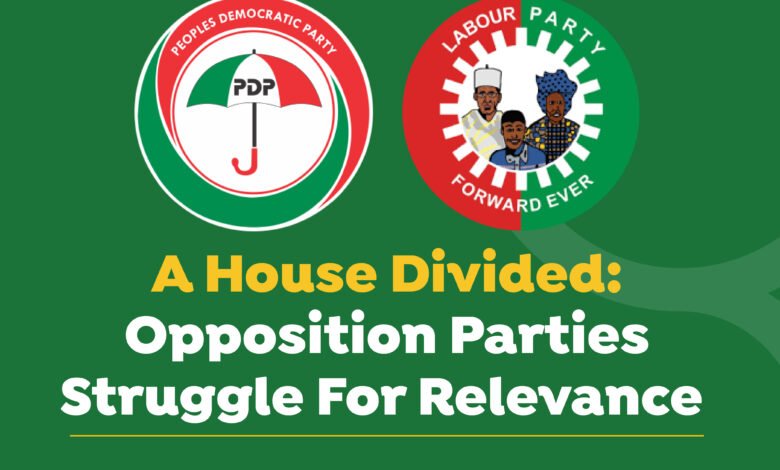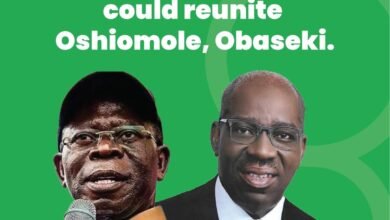
Nigeria’s political landscape is littered with the wreckage of opposition parties, their dreams of power dissolving into bitter infighting before their very own eyes.
The recent fiery words of Peter Obi, Labour Party’s 2023 presidential candidate, exemplify the woes of Nigeria’s opposition.
His threat to abandon the Labour Party reflects a wider trend of infighting and instability that has plagued the opposition for years.
“We will try to change them (LP) if we can’t, we will leave them; we will not die with them,” Obi said during an engagement with his supporters on his Verified X space, hosted by Parallel Facts on March 29, 2024,
Accusations of embezzlement and leadership crises have tarnished the Labour Party’s image, casting doubt on its ability to be a credible challenger.
A Pattern of Disunity & A House Divided
This is not a new phenomenon. When Obi switched from the PDP to the LP before the 2023 elections, he significantly weakened the PDP’s chances. Analysts saw Obi’s departure as a major blow, particularly given the PDP’s historical strength in his region. By election day, the PDP had been crippled in its former stronghold.
In 2019, Obi stood loyally as Atiku Abubakar’s running mate. However, by 2023, his ambitions had taken centre stage. No longer content to play second fiddle, Obi sought to establish himself nationally, forming the “Obidients” movement. This further divided the opposition, adding to the existing rivalry between supporters of Tinubu (“Batists”) and Abubakar (“Atikulators”).
The classic adage, “a house divided cannot stand,” perfectly captures the state of Nigeria’s opposition. Their fractured nature led to a resounding defeat in the last election. Analysts believe that a united PDP could have posed a serious challenge to the ruling party. However, the ambitions of individual leaders prevented such unity.
The PDP’s crushing defeat in 2015 exposed internal weaknesses. The party has since become increasingly divided, struggling to regain its former strength. While a semblance of unity emerged in 2019, it wasn’t enough to dislodge the APC. The PDP’s belief in its electability in 2023 proved unfounded.
Former Vice President Atiku Abubakar’s recent call for a united front highlights the opposition’s recognition of their predicament. However, political observers remain sceptical. Merging ambitions and egos seems like a daunting task. As one analyst noted, “How do you tell others to drop their ambitions for your own?”
Lessons from the Past
Nigeria’s opposition can learn from the APC’s success in 2015.
The APC’s commitment to a transparent and credible primary election process was a key factor in their victory.
Opposition parties must prioritise fairness and openness in selecting their flagbearers if they are to break the cycle of electoral defeat.
The situation continues to deteriorate. PDP representatives threaten to leave the party, while the LP grapples with internal conflicts.
The NLC’s controversial intervention in the LP’s affairs has further inflamed tensions.
Crossroads
Nigeria’s opposition parties find themselves at a crossroads. Without significant changes, they risk permanent marginalisation.
Unity, transparency, and strong leadership are essential ingredients for a successful opposition.
Can they rise to the challenge and present a viable alternative to the ruling party, or are they destined to remain perpetually on the outside looking in? Only time will tell.





